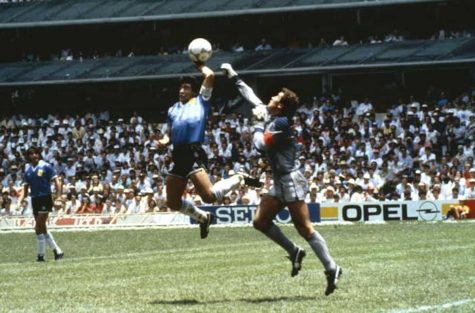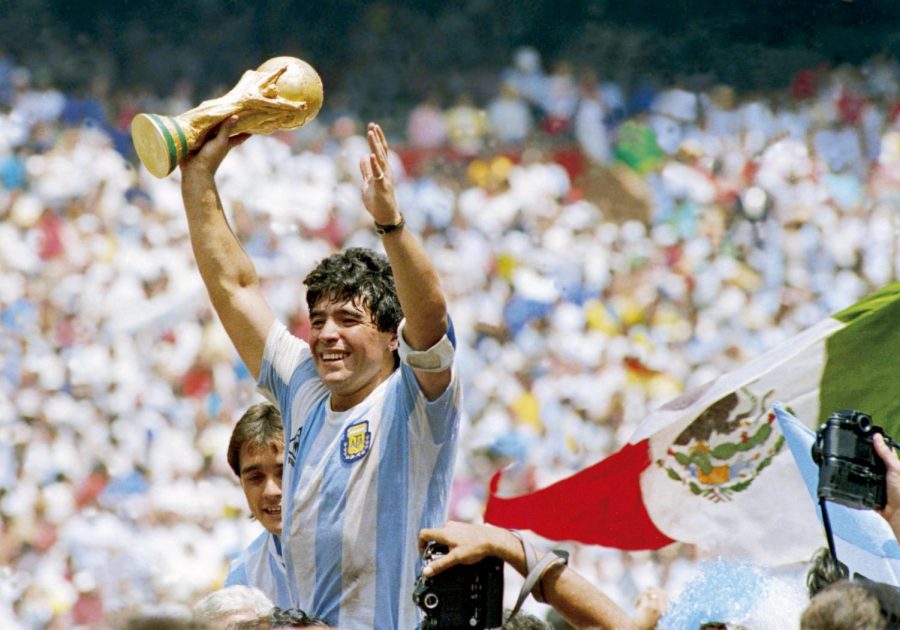Diego Maradona: The death of a God from the perspective of a lifelong rival
Sky Sports
Maradona led his country, Argentina, to the title of the 1986 World Cup in Mexico in what many consider to be the the greatest performance of a player in the history of World Cups.
November 25, 2020
On November 25th, 2020, Diego Armando Maradona, one of the greatest footballers of all time, has died due to a cardiac arrest.
I dedicate this story to all the lovers of the beautiful game and all Argentinians who have not only lost a legend today but a God.
For those unfamiliar with football history (I’ll be referring to it as football), Diego Maradona is probably the most important character in the game’s history, and without a doubt in the top five players of all time. Maradona led a somewhat weak Argentinian team to its second world title in 1986, being the most important players and creating

moments that will leave in fame and infamy, such as the game against England where he scored two of the most remarkable goals in football history. One of them being one of the most beautiful goals in the history of world cups, and the second being known as “la mano de Dios” (the hand of God) where he jumped high and, with his hand, scored, beating the English keeper to the ball. Somehow the referees of the match didn’t seem to realize how the 5’5” feet tall Maradona beat the 6’1” feet tall goalkeeper.
As a Brazilian who has loved football since the very first second of my existence, it is hard to admit Maradona is probably the most remarkable player in the history of the game. And by remarkable, I mean it in every meaning of the word. He is by far the player that sparks the most emotion on any football fan, being the feeling of love or hate.
For those who don’t know, Brazil and Argentina hold what I believe to be the greatest inoffensive rivalry between countries that I know of. Because of that, I learned to hate Maradona from a very young age. A player who brought the most important title in the game to his country, our adversary, by cheating, but mainly because of his genius plays.
Today I learn that there is a very thin line between love and hate. I kid you not that if you asked me on November 24th, 2020 who were the footballers I hated the most, Maradona would most definitely be on the top of my list. Today I found myself holding back tears as I learned about his death. I can’t imagine what the Argentinian people are going through, and despite daily making fun of them and their country as most Brazilians do (I remember when Brazil beat Argentina in Copa America last year, one of the trending topics on Twiter was “nothing makes me happier than seeing Argentinians sad), today I, along with most Brazilians, find ourselves grieving the death of a man who has brought us great pain.
Maradona put the “beautiful” back in the beautiful game. It is too soon to say what the impact of his death is not only in the game but in the world, but it is not too soon to say how this man has not only changed the game but lives.
There is a very famous quote from Argentinian author Pablo Alabarces that says: “Brazilians love to hate Argentina. Argentinians hate to love Brazil.” But today I find myself between worlds. As I said, there is a very thin line between love and hate, maybe inexistent, therefore, today any combination along the lines of “I hate to hate Argentina” or “I hate to love Argentina” means pretty much the same now. The only thing I know is that heroes like Maradona do not die. Maradona will never die. What happened was the embodiment of not an idol, but a God has left us today.
Gods and kings are eternal.
Thank you, Maradona.



















